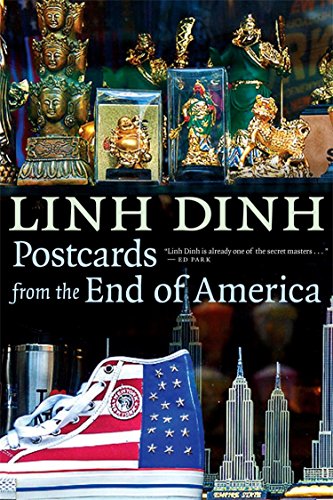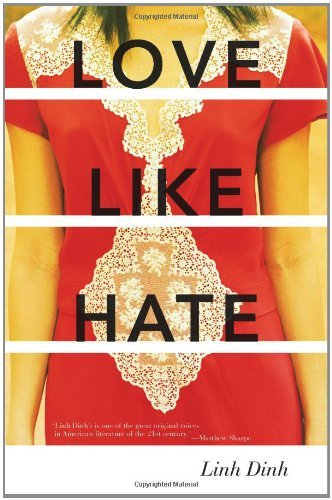Despairing Americans often threaten to move to Canada, but how many even know what it’s like now? Many liberals assume that our northern neighbor is more progressive, while those on the right might think that it’s, ah, whiter. Ask your average American to name ten Canadians, and it’s likely that nine will be white guys who can deftly handle a puck, with the tenth, the ultra-vanilla Justin Bieber.
According to Statistics Canada, 28% of Canada’s population will be foreign-born by 2031. In 2011, 4.53% of its residents were already Chinese, and on three visits to Toronto since, I’ve seen many more Han faces on the streets. Chinatown is pushing east into downtown, and west into Trinity Bellwoods, Little Portugal and Little Italy.
Outside Dragon City Mall in the heart of Toronto’s Chinatown, an old man played the erhu while another peddled rat traps from a cart. Within sight, Scotia Bank and National Bank had signs in Chinese.
With such an influx of immigrants and refugees, Toronto now touts itself as the most multicultural city on earth, even more so than London, New York or Paris. Its inhabitants, then, can sample not just a vast array of international dishes, but also hybrids such as sushi burritos at Rolltation or Dr. Pepper-flavored Jamaican pulled pork on a Belgian waffle, at Junked Food Co. In Kensington Market, there’s an eatery called Hungary Thai. Sticking to the basics, Ian and I chowed on banh mi, then, for dessert, Colombian candied crickets, bought from a street kiosk.
Buy Silver at Discounted Prices
Within the shadow of Notre Dame Cathedral in Montreal is New-Agey Boutique Lotus, and two doors down is Ming Tao Xuan, as astonishing a Chinese tea house as you’ll find outside Asia. With its many display cases filled with teapots, buddhas, sculpted animals, crystals, necklaces and bracelets, it’s also a museum. Tea choices range from the White Hair Silver Needle, Golden Beautiful Eyebrow, Black Tartary Buckwheat to Chun Jian Raw Pu’er, with everything served in clay tea pots on bamboo trays.
 Postcards from the End...
Best Price: $7.22
Buy New $12.95
(as of 05:45 UTC - Details)
Postcards from the End...
Best Price: $7.22
Buy New $12.95
(as of 05:45 UTC - Details)
It’s been in business for decade. As my friend Ian and I sipped from aromatic cups at a rosewood Ming table, the middle-aged proprietor stood by the counter and crooned along to a recorded ballad, chuckling every so often at its lyrics.
Outside the large picture window, a white, female beggar in a yellow windbreaker stood at the corner of Bressole and Saint Sulpice. Streaming by, foreign and domestic tourists mostly ignored her. Leaving Ming Tao Xuan, we could hear her singing “Que Sera, Sera.”
At Dunn’s Downtown Diner, we ate the confounding poutine to Bollywood music. As I struggled through my mess of French fries and curd cheese smothered in brown gravy, I lamented to Ian, “I can’t believe any French population could come up with this!”
Our waiter was a second-generation Portuguese-Canadian. “Yes, I can still speak Portuguese. Language is a big issue in Canada. Here in Quebec, sometimes you’ll hear two people talking in English and French, with each refusing to speak the other’s language!”
To babble a foreign tongue is to petition for admission into another family and heritage, a farcical failure in most cases, and that’s why most people don’t stray from their mama lingo. Even within a language, dialects and accents further divide. We are not one. Strolling through Kensington Market, I spotted the Hainan Association of Ontario. Even after half a century of internationalist indoctrination, Chinese are most trusting and loyal to people from their home region.
Nearer downtown, I caught a flyer that said, “BURN THE DETENTION CENTRES. DEPORT THE GOVERNMENT. WELCOME THE REFUGEES.” Similar flyers can be found in all majority-white countries, and notice how no protest is raised about not generating refugees in the first place.
With no government, there are no borders to be defined, much less defended, but this is fine, see, since we’re all one, and this, mi amigo, is precisely the message being pushed relentlessly by the corporate, globalist elite to their progressive consumers. At Yonge-Dundas Square, the Hard Rock Cafe had this slogan on its facade, “ALL IS ONE.”
 Love Like Hate: A Novel
Best Price: $5.10
Buy New $11.14
(as of 10:10 UTC - Details)
Love Like Hate: A Novel
Best Price: $5.10
Buy New $11.14
(as of 10:10 UTC - Details)
Inside the Eaton Center, an upscale luggage outfit displayed a large poster of “SUNNY WANG / Global Citizen.” On YouTube, there’s a video of Sunny flying on a chartered plane, swimming with sharks and even meditating on the ocean floor. Très cool. “As humans, we have a responsibility for this planet.” With a $350 backpack and $1,200 suitcase from Tumi, you too can be a responsible global citizen.
Sunny Wang reminds me of a Canadian editor at Dissident Voice, “DV Co-Editor Kim Petersen enjoys scuba diving, working out, and advancing the struggle for a world based on principles of peaceful and equitable sharing and respect for the environment and life … and Anton Berg marzipan. He studied at universities in occupied First Nations territory (‘British Columbia,’ ‘Canada’) and Norway.”
After giving articles to Dissident Voice for several years, I stopped when Petersen objected to my using “Indians” to describe the people of Wolf Point, Montana. Very politically correct, certain Canucks.
With its French language as relative barrier, Montreal attracts fewer immigrants than Toronto or Vancouver, but this city has also become much moremixed. Stumbling into Barfly in Le Plateau-Mont-Royal, Ian and I managed to chat with a few locals about a rapidly changing Canada.
On a warm, pleasant evening, we sat around a picnic table behind this charmingly grubby bar. John, in his early 50’s, said, “We live in a little bubble here, but honestly, no one I know, at all, is grumbling about immigrants.”
Maddy, 40-ish, elaborated, “It’s not an issue, because there’s so much space, and so much resource.”
John, “There was an actual issue for a brief spell, in the early 90’s. It had specifically to do with French schools, because the French schools had traditionally been Catholic and white, and what was happening in Montreal was schools winding up with, say, 40% immigrants. You had a lot of Spanish students who came in. That was reported on more than 20 years ago, but it’s over. Let me put it this way, ethnic gangs in schools are not a problem.”
Madie, “There’s a very strong, kind of outdated Quebec national identity that has to do, very much, with having a European ancestry, speaking French and being Catholic. There’s a strong history of sovereignty, and it’s dying out now only because the time is changing. When you talk about national identity in North America, it doesn’t really make sense, as it did twenty years ago.
“In the 70’s, there was an ideological framework about immigrants called multiculturalism, by Trudeau the elder. Multiculturalism was supposed to set itself apart from the state’s melting pot concept, meaning you keep your culture when you come to Canada, and you keep and celebrate your differences. Yes, you try to learn the language and whatever, for economic reasons, but there’s no pressure, you know, to fit into a kind of common culture, so maybe that had an effect over the years, to change attitudes and tolerate differences. Maybe that’s why there are less racist crimes here.”
At this point, we were joined by Peter, a jazz pianist in his late 40’s. Peter related a racial incident, “I saw one guy who pulled his van in front of a car that had four women in it. They were wearing the hijab. He very slowly filled up his car with gasoline, so they couldn’t leave. When they politely honked their horn, he went up to a window and slammed his hand on their car, as if to say, “Fuck you, you don’t belong here, so I don’t even acknowledge you!” He was an older white man. I’ve also heard from black musician friends about the shit they have to endure. The driving while black exists here in Quebec as well.”
Having visited the US several times, Maddy and Peter think their country is in way better shape. Canadians are better informed, they told me, and with a social safety net, it’s very difficult to end up lying on concrete or asphalt. There’s nothing like Detroit, Camden, Baltimore or Gary in Canada. Welfare per month is 600 CAD, with no time limit, and healthcare is free. If you’re mentally ill, then it’s 900 bucks. Higher education is also much cheaper, even for foreigners. In Toronto’s Chinatown, I noticed a sign in Vietnamese and Chinese offering to enroll Vietnamese students in Canadian universities.
In 2016, John McCallum, Minister of Immigration, Refugees and Citizenship, declared that Canada wanted even more Chinese workers, students and tourists, “There’s a significant feeling that Canada does need more immigrants, partly because we have an aging population, and so we need more young blood to keep our economies going […] If you ask me what is the best group of people in the world to become future Canadian citizens, I would say international students.” McCallum is now the ambassador to China.
In 2011, already 27.7% of Vancouver residents were Chinese. Since many of them are quite loaded, the city now has the highest real estate prices in the entire country, with a one-bedroom apartment averaging 1,400 USD. Perhaps to make amend for stealing land from its indigenous, Asiatic populations, Canada is purposely becoming more Asian. Half a million Chinese are granted visas, of all types, per year.
Since Maddy and Peter had no objection to increased immigration, I asked my new friends if they would mind, say, several million Americans fleeing north? Suddenly, they were stumped. The prospect is very real, I insisted. The greatest show boat on earth is taking on water, keeling and throwing out sparks. Au secours, Canada!
As I write this article, a Saudi Arabian newspaper requested an interview, and one of their questions asked about how living in different countries has informed my thinking. My answer, “Every society has evolved from an utterly unique set of beliefs and experiences. In the West, the idea that borders don’t really matter has infected many minds, especially those that are relatively untouched by experiences, books or travels, but this madness shall soon pass. Crossing many borders, I know that they are sacred. Much blood has been spilled over every inch.”




